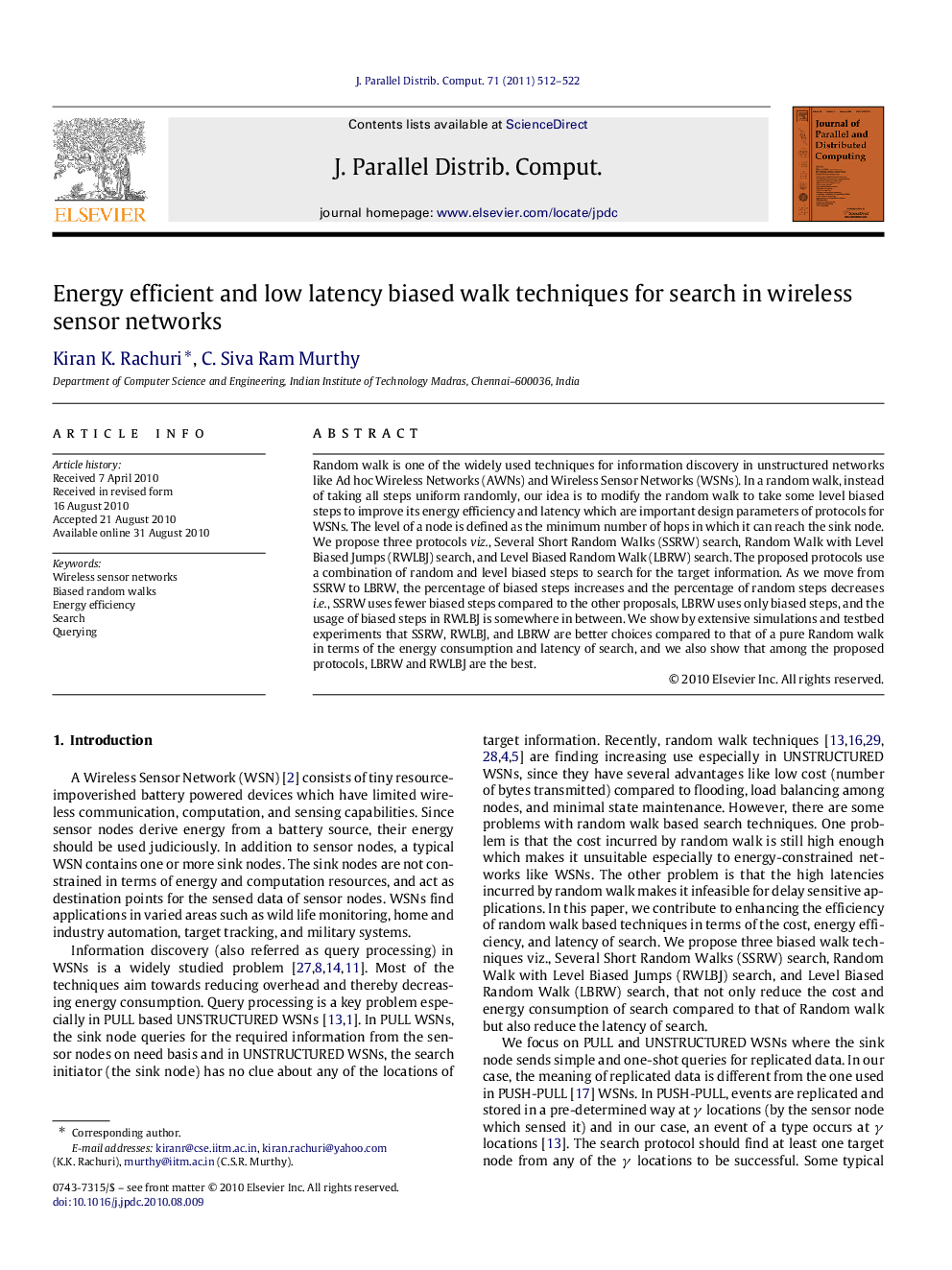| کد مقاله | کد نشریه | سال انتشار | مقاله انگلیسی | نسخه تمام متن |
|---|---|---|---|---|
| 431597 | 688591 | 2011 | 11 صفحه PDF | دانلود رایگان |

Random walk is one of the widely used techniques for information discovery in unstructured networks like Ad hoc Wireless Networks (AWNs) and Wireless Sensor Networks (WSNs). In a random walk, instead of taking all steps uniform randomly, our idea is to modify the random walk to take some level biased steps to improve its energy efficiency and latency which are important design parameters of protocols for WSNs. The level of a node is defined as the minimum number of hops in which it can reach the sink node. We propose three protocols viz., Several Short Random Walks (SSRW) search, Random Walk with Level Biased Jumps (RWLBJ) search, and Level Biased Random Walk (LBRW) search. The proposed protocols use a combination of random and level biased steps to search for the target information. As we move from SSRW to LBRW, the percentage of biased steps increases and the percentage of random steps decreases i.e., SSRW uses fewer biased steps compared to the other proposals, LBRW uses only biased steps, and the usage of biased steps in RWLBJ is somewhere in between. We show by extensive simulations and testbed experiments that SSRW, RWLBJ, and LBRW are better choices compared to that of a pure Random walk in terms of the energy consumption and latency of search, and we also show that among the proposed protocols, LBRW and RWLBJ are the best.
Research highlights
► Random walk is one of the widely used techniques for information discovery in unstructured networks like Ad hoc Wireless Networks (AWNs) and Wireless Sensor Networks (WSNs). In a Random walk, instead of taking all steps uniform randomly, our idea is to modify Random walk to take some level biased steps to improve its energy efficiency and latency which are important design parameters of protocols for WSNs. The level of a node is defined as the minimum number of hops in which it can reach the sink node.
► We propose three protocols viz., Several Short Random Walks (SSRW) search, Random Walk with Level Biased Jumps (RWLBJ) search, and Level Biased Random Walk (LBRW) search. The proposed protocols use a combination of random and level biased steps to search for the target information.
► We show by extensive simulations and testbed experiments that SSRW, RWLBJ, and LBRW are better choices compared to that of a pure Random walk in terms of the energy consumption and latency of search, and we also show that among the proposed protocols, LBRW and RWLBJ are the best.
Journal: Journal of Parallel and Distributed Computing - Volume 71, Issue 3, March 2011, Pages 512–522